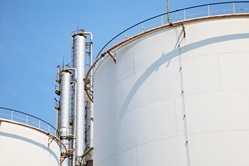
Publication
Navigating international trade and tariffs
Impacts of evolving trade regulations and compliance risks

Author:
Global | Publication | September 18, 2018
With the introduction of Modern Slavery legislation in Australia and with it a requirement to report publically on the risk of Modern Slavery in supply chains, a key modern slavery risk for energy companies lies within the cobalt used in batteries. The labour required to mine and supply cobalt is often characterised by modern slavery practices such as forced labour, and the worst forms of child labour.
Reliable energy storage for renewables energy producers is key, and batteries can be a reliable solution. South Australia is building a $1 billion solar farm and battery project and plans for several others to follow.1 These battery packs, like almost every other electronic devices on the market, use lithium-ion batteries.2 The key component contained within them, cobalt, makes the battery lighter, smaller, and more reliable than traditional lead-acid batteries. Such is the global demand that a 2.5 million tonne deficit is forecast for 2020.3 Some companies are going as far as securing a 10-year contract for cobalt supply in order to maintain reliable supply.5
Despite the market demand, cobalt operations are largely unregulated. Unlike gold, coltan and tin, cobalt is not covered under existing conflict mineral regulations such as the Securities and Exchange Commission’s disclosure requirements, which require companies to establish a due diligence program for suppliers.
Approximately 60% of the world’s cobalt is mined in the Democratic Republic of Congo (DRC), where a significant number of modern slavery instances, including human trafficking, coercion and exploitation, have been reported to be connected with the labour used in cobalt mining.5 Children as young as seven work in perilous conditions, particularly in informal or artisanal mines where cobalt is extracted from rocks by hand without protective equipment, for up to 12 hours a day. Many miners, both adults and children, later experience potentially fatal health effects from the prolonged exposure to cobalt dust. Violence from supervisors and mine collapses are common. Once mined, the cobalt passes “downstream” in the supply chain through traders, subcontractors, smelters and importers, before it reaches the manufacturer. The global and complex nature of this process means it is often several layers removed from the corporate purchaser and any modern slavery risks are obscured by the numerous and opaque supply chain links.
Companies are accelerating their efforts to address the risks posed by cobalt mining. Some initiatives include:
With the introduction of the Modern Slavery Act Bill 2018 in the Commonwealth Parliament, and the passing of the Modern Slavery Act 2018 in NSW, businesses will be required to report publically on where there is a risk of slavery in their operations and supply chain and the steps taken to eliminate that risk. For energy and technology companies, supply chain review will ultimately require consideration of the source of the cobalt used in batteries.
In contrast to the UK Modern Slavery Act 2015, the Australian Modern Slavery Act will require reporting entities to specifically address mandatory criteria, including:
Businesses may expose themselves to a damaging reputational backlash if they are not alert to these risks and do not properly address them in their modern slavery statements. Under the NSW Law, there are penalties of up to $1.1million for misleading information contained in a modern slavery statement. Australian businesses publishing misleading reports that misdescribe their modern slavery risk may also contravene the Australian Consumer Law.
To prepare, businesses that have not already done so should consider the following steps:
Mapping supply chains and organisational structure on a global basis, including subsidiaries and related entities, to identify high-risk areas.
Commencing this process early is essential to ensure compliance with the reporting requirements. At least for energy storage, batteries are likely to be one of the highest risk elements of the supply chain.
Batteries can overcome many of the issues with reliable storage of renewable energy. However, their use comes with corresponding human rights challenges - challenges that Modern Slavery transparency laws will inevitably uncover.
To read our previous articles on Australia's Modern Slavery Act, please visit our Modern Slavery Act hub.
The Guardian, South Australia to get $1bn solar farm and world’s biggest battery (30 March 2017) https://www.theguardian.com/environment/2017/mar/30/south-australia-to-get-1bn-solar-farm-and-worlds-biggest-battery; Renew Economy, Musk says storage orders surge on success of Tesla big battery (8 February 2018) https://reneweconomy.com.au/musk-says-storage-orders-surge-on-success-of-tesla-big-battery-63587/.
Hermes Investment Management, Modern slavery: the true cost of cobalt mining (16 January 2018) <https://www.hermes-investment.com/ukw/blog/perspective/modern-slavery-true-cost-cobalt-mining/>.
Mining Weekly, Zinc price on the up as supply tightens; cobalt forecast revised upwards as demand intensifies (26 September 2017) <http://www.miningweekly.com/article/zinc-price-on-the-up-as-supply-tightens-cobalt-forecast-revised-upwards-as-demand-intensifies-2017-09-26>.
Financial Times, BMW on verge of multiyear lithium and cobalt deal (13 February 2018) <https://www.ft.com/content/95ed34f0-10da-11e8-940e-08320fc2a277>.
Amnesty International, DEMOCRATIC REPUBLIC OF CONGO: "THIS IS WHAT WE DIE FOR": HUMAN RIGHTS ABUSES IN THE DEMOCRATIC REPUBLIC OF THE CONGO POWER THE GLOBAL TRADE IN COBALT (19 January 2016) <https://www.amnesty.org/en/documents/afr62/3183/2016/en/>.
Business Insider Australia, This child being abused in a cobalt mine is why Apple is trying to fix the mining business (15 May 2017) <https://www.businessinsider.com.au/apple-cobalt-mine-child-labor-2017-5?r=UK&IR=T>.
Barbara Lewis, Blockchain to track Congo’s cobalt from mine to mobile (2 February 2018) Reuters <https://www.reuters.com/article/us-mining-blockchain-cobalt/blockchain-to-track-congos-cobalt-from-mine-to-mobile-idUSKBN1FM0Y2>.
Samsung SDI Co. Ltd, ‘2016 Progress Report on Responsible Supply Chain’ (April 2017) < https://www.samsungsdi.com/upload/download/sustainable-management/Samsung_SDI_-_2016_Progress_Report_on_Responsible_Cobalt_Supply_Chain_V12.pdf>.
Bloomberg, Samsung SDI Turns to Used Phones for Cobalt as Prices Surge (12 February 2018) <https://www.bloomberg.com/news/articles/2018-02-12/samsung-sdi-turns-to-used-phones-for-cobalt-as-prices-surge>.

Publication
Impacts of evolving trade regulations and compliance risks

Publication
Low carbon projects, especially those involving hydrogen and carbon capture and storage (CCS), play a crucial role in the journey towards global decarbonization.
Publication
As a general remark, Indonesia has not, at the date of preparing this summary, issued any regulation on hydrogen production, distribution and trade. It is expected that the upcoming New and Renewable Energy Law will provide a legal framework for the exploitation and utilisation of various new energy sources, including hydrogen.
Subscribe and stay up to date with the latest legal news, information and events . . .
© Norton Rose Fulbright LLP 2026